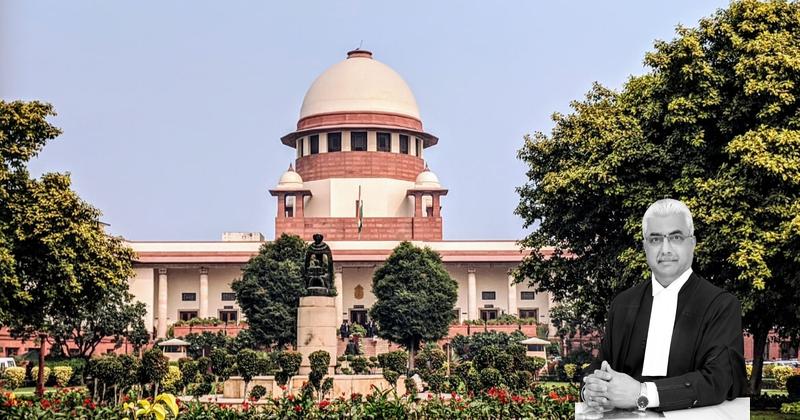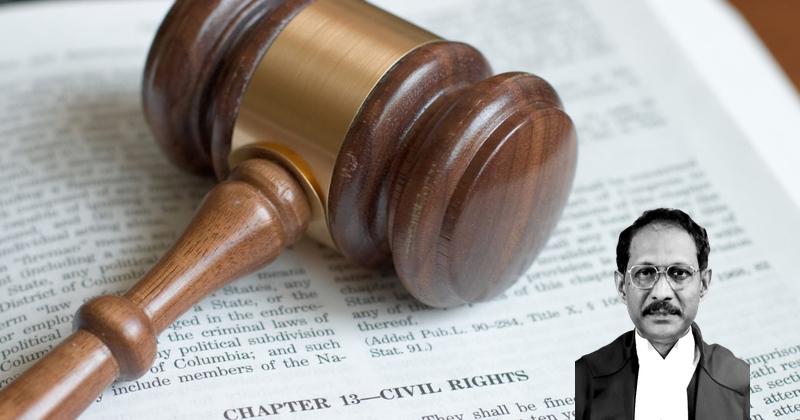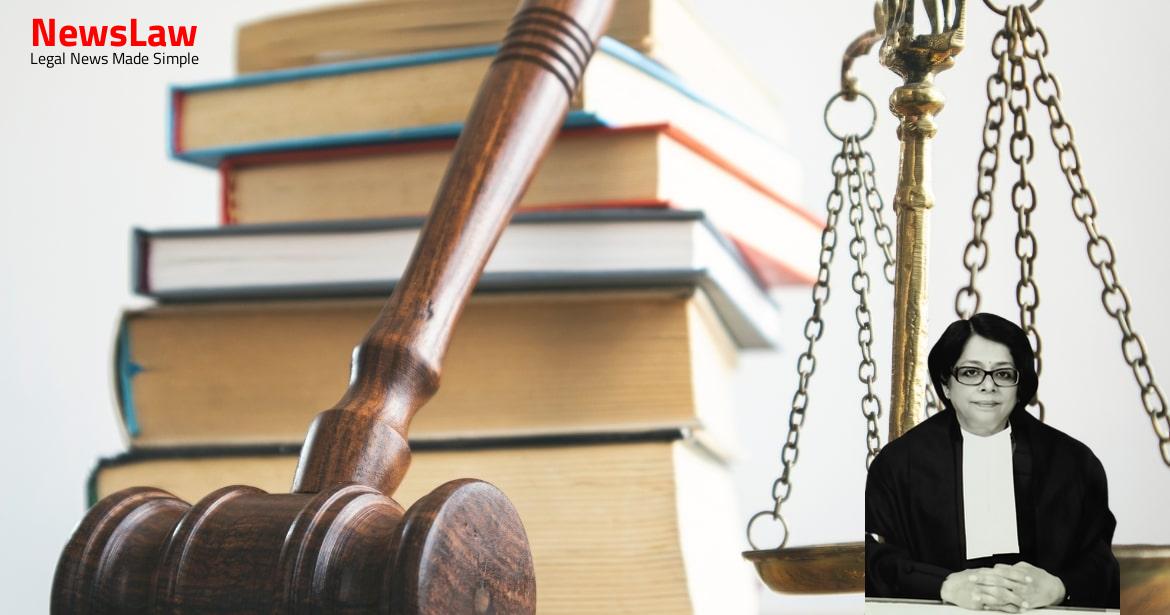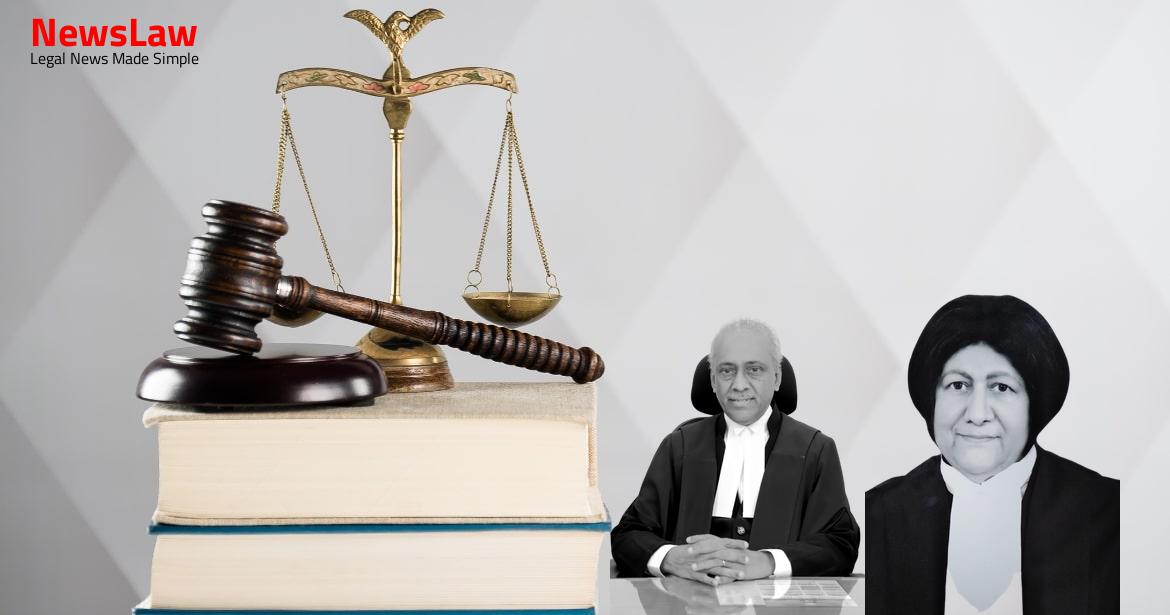The facts, in brief, giving rise to the present appeal are as under: 3.1 The appellant – Punjab & Sind Bank, was inducted as a tenant in the ground floor of premises No.8, Old Court House Street, Kolkata, 700001, now known as 28, Hemant Basu Sarani, Kolkata, 700001 (hereinafter referred to as the “suit property”) in the year 1972 by one M/s Bharat Chamber of Commerce. 3 Subsequently, in furtherance of the terms of a purported settlement agreement, dated 29 November 2010, filed in the aforementioned ejectment suit before the City Civil Court, Calcutta, a lease deed dated 11 February 2011 was executed between the parties, thereby demising the suit property in favour of the appellant for a period of 21 years. Soon afterwards, a demand notice dated 13 June 2012 was also issued by the appellant under sub-section (2) of Section 13 of the Securitisation and Reconstruction of Financial Assets and Enforcement of Security Interest Act, 2002 (hereinafter referred as ‘SARFAESI Act’) for recovery of outstanding dues of approximately Rs.44.89 crore, with interest, from the respondent. 6
Also Read: https://newslaw.in/case-type/criminal/abuse-of-process-of-law-a-case-of-delayed-fir-filing/
The learned Single Judge, vide interim order dated 15 July 2013, allowed the aforesaid application and directed that no final orders of sale be passed for a period of 6 weeks. 9
It is pertinent to note that, in the securitization application preferred by the respondent, the DRT, vide order dated 7 August 2013, refused to proceed further on account of the pendency of the civil suit before the High Court. 10 Vide the impugned judgment dated 30 January 2017, the learned Division Bench allowed the respondent’s appeal and set aside the order of the learned Single Judge dated 2 November 2016.
Shri Batura, on the contrary, submitted that the Single Judge, having held that the suit, being for specific performance of the terms of the settlement filed in the eviction suit, was maintainable, could not have vacated the interim relief granted earlier.
Also Read: https://newslaw.in/case-type/criminal/analysis-of-circumstantial-evidence-conviction-reversed/
Though various interim reliefs have been sought, it will be relevant to refer to Clause (d) of the prayer, which reads thus: “(d) injunction restraining the respondent from in any manner dealing with and/or disposing of and/or encumbering any part or portion of the said premises No 8, Old Court House Street, Kolkata – 700001.” It could thus be seen that a blanket injunction restraining the respondent, i.e. The provisions of Section 34 of the SARFAESI Act have been considered by a Bench of three Judges of this Court in the case of Mardia Chemicals Limited and Others v. A full reading of Section 34 shows that the jurisdiction of the civil court is barred in respect of matters which a Debts Recovery Tribunal or an Appellate Tribunal is empowered to determine in respect of any action taken “or to be taken in pursuance of any power conferred under this Act”. The bar of civil court thus applies to all such matters which may be taken cognizance of by the Debts Recovery Tribunal, apart from those matters in which measures have already been taken under sub-section (4) of Section 13. 141 and 144, a judgment of the learned Single Judge where it is observed as follows in para 22: (AIR p.
The Court has held that the prohibition covers even matters which may be taken cognizance of by the DRT though no measure in that direction has so far been taken under sub- section (4) of Section 13 of the SARFAESI Act. It has categorically been held that any matter in respect of which an action may be taken even later on, the civil court shall have no jurisdiction to entertain any proceeding thereof.
In such appeals, the appellate court will not interfere with the exercise of discretion of the court of first instance and substitute its own discretion except where the discretion has been shown to have been exercised arbitrarily, or capriciously or perversely or where the court had ignored the settled principles of law regulating grant or refusal of interlocutory injunctions. If the discretion has been exercised by the trial court reasonably and in a judicial manner the fact that the appellate court would have taken a different view may not justify interference with the trial court’s exercise of discretion. [1942 AC 130] ‘…the law as to the reversal by a court of appeal of an order made by a judge below in the exercise of his discretion is well established, and any difficulty that arises is due only to the application of well settled principles in an individual case’.” It has been held by this Court that the Appellate Court would not interfere with the exercise of discretion of the court of first instance and substitute its own discretion except where the discretion has been shown to have been exercised arbitrarily, or capriciously or perversely or where the court had ignored the settled principles of law regulating grant or refusal of interlocutory injunctions.
It has been held that if the discretion has been exercised by the trial court reasonably and in a judicial manner the fact that the appellate court would have taken a different view may not justify interference with the trial court’s exercise of discretion.
Also Read: https://newslaw.in/case-type/criminal/quashing-of-proceedings-in-criminal-case-no-542-of-2020/
Pending application(s), if any, shall stand disposed of.
Case Title: PUNJAB AND SIND BANK Vs. FRONTLINE CORPORATION LTD (2023 INSC 386)
Case Number: C.A. No.-002924-002924 / 2023



